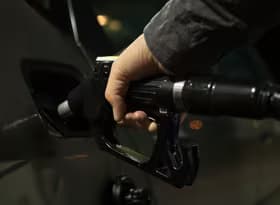Fuel prices are incinerating your wallet
Fuel prices were already high at the beginning of 2022 as supply chains and fuel production weren’t keeping up with the rebound in global demand. Resurgent economic activity due to easing COVID-19 restrictions worldwide has meant demand for fuel has recovered from its slump in 2020 and early 2021. On top of this, the war in Ukraine and the subsequent sanctions imposed on Russia have only exacerbated the upwards fuel price spiral.
Oil markets shrouded by war and geopolitics
On 6 March, America’s Secretary of State announced that “we are now talking to our European partners and allies to look in a co-ordinated way at the prospect of banning the import of Russian oil.” This announcement sent oil markets into chaos, and prices for Brent crude oil rose to over US$130/bl, although they have since come down to US$113/bl. These prices are eye-wateringly high, particularly given that prices were considered extortionate when they breached US$100/bl a few weeks ago. On 8 March, President Biden confirmed that a ban on Russian oil imports would go ahead.
The US produces large quantities of oil and could cope without any supply from Russia. The same cannot be said about Europe, which is heavily reliant on Russian energy exports. Nevertheless, the UK has also said it will wean itself off Russian oil imports by the end of 2022.
Russia is the second largest exporter of crude oil, so these strict sanctions will deal a powerful blow to the Russian economy and weaken its government in the process. The world is sending a clear signal that we won’t tolerate unjustified invasion or war, but the effects will take time to weaken Russia. The scope for the rest of the world to alleviate supply shortages will also be limited, given the scale of the market that is being placed off-limits almost overnight.
Further fuel price rises expected
Fuel prices in New Zealand have been rising steeply since the start of the year, but further price rises can be expected, as oil price changes precede price movements at the pump. The latest discounted 91-octane petrol prices from MBIE were at $2.86/L last week, but prices are now pushing over $3.00/L in several places. Rising fuel prices not only hurt households with higher fuel costs for commuting, around-town trips, and weekends away, but they also add cost pressures to all freight and transport and will stoke the current inflation fire even more.
What can be done to reduce the pain?
The world will need to find other supplies of oil and gas to mitigate the effects of these strict sanctions. The International Energy Agency (IEA), an intergovernmental agency that tries to ensure stable oil supplies, announced at the start of March that it would release 60m barrels of oil from its reserves to help alleviate further price pressure. However, considering Russia exports nearly 5m barrels of oil per day, this relief will be very temporary.
Other countries will need to ramp up production to meet the shortfall. This increase in supply could come from OPEC nations; the UAE has just announced they want OPEC to increase production. A few other large producers could have some potential to increase supply, but the ability to make up for the loss of supply from Russia is limited given the immediate effects of the sanctions. Getting a nuclear deal over the line with Iran could mean sanctions are removed on its oil exports. But even if this tap opens up, Iran’s production is dwarfed by Russia.
No clear end in sight
Venezuela is another country that had its oil sanctioned by the US because of illegitimate elections in 2019. This move may have dented an economy that was already struggling, but it has not been sufficient to topple the regime that benefits greatly from state-owned oil assets. If sanctions are going to weaken the Russian government sufficiently to stop the war in Ukraine, it’s unfortunately likely to be a slow burn.
All the signs are that high fuel prices are likely to stick around for a while as the world adapts to the new reality. Furthermore, worldwide action towards climate change has meant that investment in oil and gas production has been falling in recent years, so there’s less scope than previously to ramp up production quickly. New Zealand will find itself at the mercy of large overseas oil exporters and international price trends.
Fuel price rises will further encourage the uptake of EVs. However, Russia is also an important producer of key materials in electric vehicle production such as aluminium, copper, and nickel, which suggests that electric vehicle prices may not fall as quickly as has been predicted or could even be pushed up as a result of the war and sanctions.
New Zealand has also jumped abroad the sanction train, passing a law that allows us to sanction people, companies, and assets tied in with the conflict. This individual action will hardly scare Russia, but the widespread international condemnation certainly will. For the meantime, we can only hope that all this action hurts Putin, his oligarchs, and their political legitimacy within Russia more than it hurts the rest of the world. For a country such as New Zealand, which is heavily reliant on commodity trading, the effects of the conflict and political responses will certainly leave a mark.














